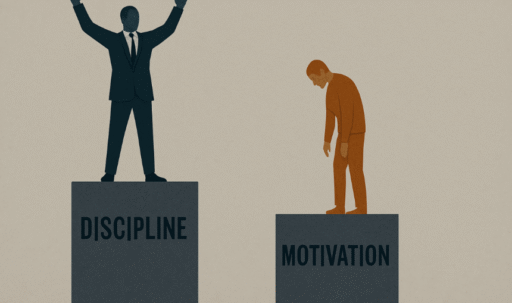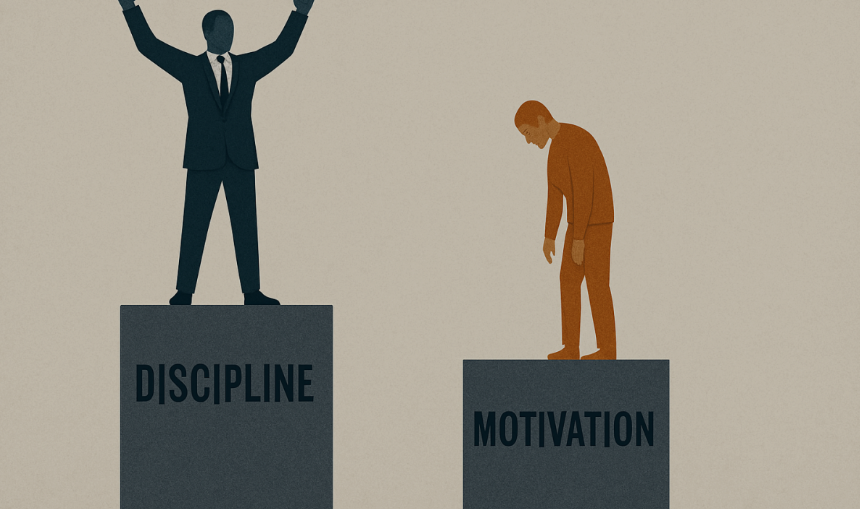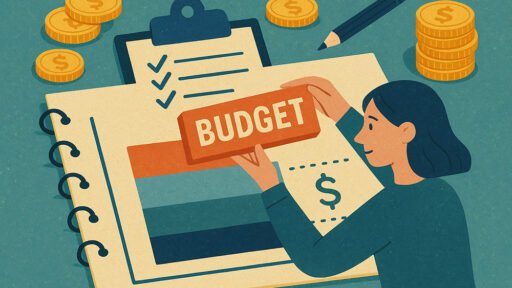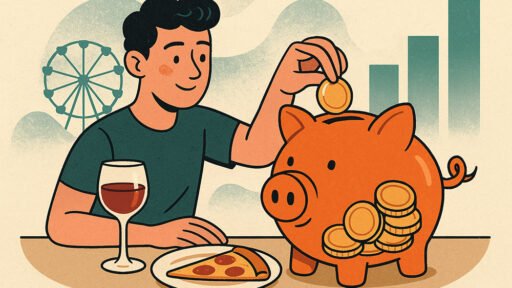We’ve all heard tales of people who have struck it rich, winding up overnight millionaires when they won the lottery. Or perhaps you’ve heard of someone who inherited a fortune from some long-lost uncle. These are thrilling stories, and they make us dream of what we might do if we suddenly had a lot of money. But here’s another revelation that is much less appealing: the vast majority of lottery winners go broke within just a few years. People who do that little day-to-day grind of financial discipline often end up with wealth that lasts generations.
Because the fact is, good fortune may get you a brief head start, but only discipline can keep stability in our lives. It’s like planting a garden — bear with me. You might hit it lucky and have had some wild seeds blow from somewhere to grow in your yard. But if you hope to cultivate a garden that will feed your family year after year, then you must sow seeds mindfully, water carefully and pull out the weeds. It’s just like financial discipline—it comes down to making smart decisions every single day, not praying for a miracle.
In this post, I’m going to explain why financial discipline is the real secret to living a rock-solid life, how it differs from luck-based approaches and techniques you can use right now to start practicing that skill.
The Luck Fallacy
Luck is unpredictable. That’s also what in the first place is “luck.” If you base your financial future on good fortune, well, that’s like building a house on sand. It could last a while, but one big wave could carry it all away.
Let’s take a peek at some real numbers. Studies show that roughly 70 percent of lottery winners are bankrupt within a few years. Not because the money vanished — but because they never learned the habits to steward it. They had no financial discipline, so however many millions they made (or were given), they would spend them faster than they could take them in.
Here’s another one: Some people are fortunate to land an incredibly well-paying job as soon as they graduate from college. But they are only going to be working as long as they hold that job, right? Or after the economy goes into a downturn? They’re right where they started, or worse, as a few of them have expensive habits to support now.
Luck can also make you lazy. When good things come without effort, your brain begins to predict that pattern. You may quit trying hard, stop learning new skills or stop planning for the future. It’s the lottery mentality, and it’s a dangerous one because, let me tell you, that isn’t how things tend to work in real life.
What Financial Discipline Actually Means
Financial discipline is not about being cheap or never having fun. It’s about being deliberate with your money, rather than letting it (or the lack of it) control you. Think of it as being the one who holds the wheel in your financial car, rather than just sitting in the passenger seat wishing someone else takes over and drives you where you want to go.
Financial discipline, at its heart, means:
Living beneath your means: Spending less than you earn. It might sound easy, but a lot of people do the opposite — instead of building wealth by saving and living below their means, they end up spending MORE than they earn through credit cards and loans.
Long-term planning: Rather than just reacting to what occurs, you think ahead. You save in case you need emergency funds, for that big purchase around the corner and to retire on.
Thinking before you act: Every time you spend money, you consider whether this expenditure will support your larger goals. You’re not just buying things because in the moment you feel like it.
Maintaining consistency: This is the key. Financial discipline is doing the right things when it’s boring, when your friends are all doing something different, and even when you don’t see immediate results.
Think about athletes. The best basketball players don’t just roll out of bed and expect to get lucky on game day. They shoot hundreds of free throws, they exercise daily, they dissect game film and they eat responsible diets. It is the discipline that makes them great, not luck. The same goes for your finances.
How Discipline Creates Real Stability
Stability is the capacity to respond robustly to life’s unsteady crises. Your car breaks down? You have money saved. You lose your job? You can find a new apartment and pay rent for few months. You want to retire someday? You have been investing for years, so you’re on the right path.
This is how financial discipline creates that particular form of stability:
Emergency funds are a bit like a safety net: When you are following financial best practices, one of the most basic is to save up money for those unexpected emergencies that could happen at some point in the future. Most experts recommend having three to six months’ worth of expenses saved. That may strike you as a lot, but if you are disciplined about saving each week — say, $50 or $100 — those contributions can grow surprisingly fast.
Compound interest becomes your friend: This is where discipline is truly your best buddy. When you put money in regularly and leave it, no matter how small the amount is, it adds up over time. Each year in addition to the interest that your original money earns, you also earn the same percentage on all of the interest that has already been paid. Over years, it’s the kind of thing that can turn small savings into big money.
You establish good credit: You pay your bills on time, you don’t max out credit cards. That creates a good credit score, which will save you money by allowing you to receive better interest rates on loans — for cars, homes or businesses.
Opportunities come to those who are ready: If you’ve saved enough and don’t have debt, you can take advantage of opportunities that other people might not be able to. Maybe a buddy wants to start a business and is looking for someone to partner with. Perhaps your dream house hits the market. Those with fiscal discipline are in a position to say “Yes” to such opportunities.
The Discipline vs. Luck Comparison
Let’s compare these two approaches and put them side by side to make the differences visible:
| Aspect | Relying on Luck | Practicing Financial Discipline |
|---|---|---|
| Predictability | High variability | With discipline |
| Money longevity | Sometimes money doesn’t last | Once wealth is established it remains |
| Stress level | High anxiety | Lower stress |
| Control | No control over your future | You control your financial future |
| Success rate | Very low (most lottery winners go broke) | Very high (savers always win) |
| Time commitment | Immediate but short-lived | Requires minimal time over the long-term |
| Skills gained | None | Budgeting, investing, planning, patience |
| For hard times | No backup plan; highly volatile | An emergency fund can protect you |
I mean that’s a pretty clear table, right? Luck may feel thrilling, but discipline wins every single time in the business of creating real, enduring stability.
True Stories That Make the Point
So here are some actual people (whose names have been changed to protect their privacy) who learned that lesson:
Maria’s Story: Maria left college with $40,000 in student debt. She didn’t wait for a miracle — she had a plan. She had roommates to keep rent low, brought lunch to work rather than eat out and threw every spare dollar toward her debt. Five years later, she was debt free and had begun saving for a home. Meanwhile, her friends who had continued to wait for a “big break” were struggling with the same debt as before.
The Johnson Family: They demonstrated financial discipline by saving 20% from each paycheck, regardless. When the pandemic struck and both parents were briefly out of work, they had eight months’ worth of expenses in savings. They didn’t lose their home, and they didn’t fall into debt. For their neighbors who’d been making the same amount but spending it all, though? They moved in with family members.
David’s Mistake and Redemption: David was lucky: He found a job early in his career that paid $100,000 a year. He purchased an expensive car, rented a luxury apartment and dined out every single night. He had a zero balance when his company downsized and he lost his job. He lost the car, moved back home and it took him years to rebuild. Now he is financially disciplined and with more stability is making less money than ever in his “lucky” years.
Building Your Discipline Muscle
Money discipline is a muscle — it only grows when you use it. Here’s how to begin building that muscle, even if you currently have none:
Begin with something basic: Write out how much money comes in every month and where it all goes. You can’t manage what you don’t measure. Use a notebook, spreadsheet or one of the many free apps. The real ticket is to track everything for at least one month.
Automate your savings: If you’re not the most disciplined saver, here’s a little trick that can make saving less painful: Just do it automatically. Direct your bank to automatically move money from your checking account into a linked savings account whenever you get paid. You don’t miss money you never see, and it’s surprising how quickly that amount can grow.
The 50/30/20 Rule: Spend 50% of your income on needs (rent, utilities, food), 30% on wants (dining out, entertainment), while saving 20%. It may not be ideal for all of us, but it’s a good place to start.
Master delayed gratification: It’s fancy language for “wait to buy things.” When you like or want something, wait 48 hours before buying it. You will be surprised at how many things there are that you don’t actually want after the rush wears off.
Celebrate small victories: Did you follow your budget for an entire month? Celebrate! Saved your first $1,000? That’s awesome! Celebrating progress helps to keep you motivated to continue.
Get an accountability buddy: Share your financial goals with a friend or family member. Check in with them regularly. It’s tougher to quit when someone else knows what it is you’re working toward.
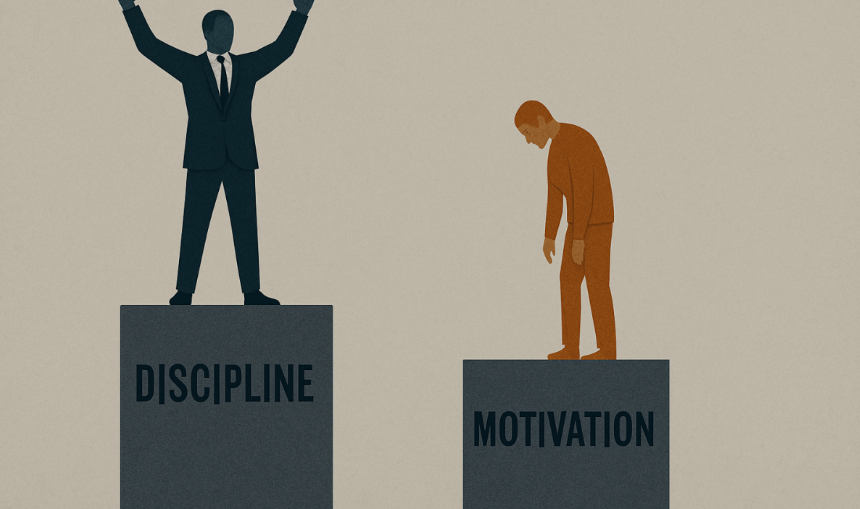
Common Barriers and Overcoming Them
Knowing that financial discipline is important doesn’t make it easy. Here are the most common barriers and how to work through them:
“I don’t earn enough money to save”: This is the single most common excuse, and it’s rarely even partially true. Even setting aside $5 a week is better than nothing. Again, the habit is more important than the amount when you’re starting. As you improve your budgeting, you’ll come up with more money to save.
“Everyone else is spending money and having fun”: The social pressure is real. Your buddies are hitting up fancy restaurants, buying the latest clothes and posting pictures from fabulous vacations. Don’t forget — you don’t know the state of their finances. They could be in debt up to their eyeballs. Simply work to improve yourself, not keep up with the others.
“I’ll save when I make more money”: This is a road to nowhere. People who make this excuse will spend more when they earn more, and won’t end up saving at all. Begin right now with what you have. Future you will be grateful.
“I want to treat myself”: You should! But treats should be planned, not spontaneous. Make sure you add some fun money to your budget, so that you can live a little without derailing your financial goals.
“It’s too complicated”: Financial discipline doesn’t have to be complicated. The key to financial success is actually quite simple: Spend less than you earn, save some money on a regular basis and steer clear of high-interest debt. You’ll be able to look into more advanced tactics later.
Ever wondered why we make poor money choices? 💭 Find out the hidden triggers behind financial mistakes.
The Mindset Shift That Changes Everything
Here’s the real secret: investing in financial stability through discipline is not for everyone, because it requires a mental breakthrough. You need to stop thinking of money as something that happens TO you and instead start thinking of it as something you CONTROL.
The people who bet on luck have a reactive mindset. They say “I can’t afford that,” “I’ll never get ahead,” or “Rich people are just lucky.” Such thoughts leave you no option, they leave you to be victim of your fate.
Those who practice financial discipline have an ACTIVE MINDSET. They say stuff like “How can I afford that?” “What can I do to get ahead?” and “Rich people make good decisions most of the time.” These thoughts empower you.
This shift doesn’t happen overnight. You may even have to say good things repeatedly to yourself:
- “I can handle my money right”
- “Little and often fills the purse”
- “I control my financial future”
Your brain believes what you tell it over and over, so give it thoughts that keep you moving forward, not the other way around.
Why Starting Today Is as Important (or More So) Than You Think
All the time, people say: “I wish I started saving when I was younger.” Yes, getting started early is beneficial due to the magic of compound interest. But the best time to plant a tree was 20 years ago. The second-best time is today.
If you’re 18 years old or pushing 58, tightening your financial belt will always make life a little better. Someone who starts saving at 50 may not retire as a multimillionaire, but certainly will have more peace than if they never had started. A 25-year-old who begins today will be surprised at how strong his or her finances are by the time he or she is 40.
And here is the point: Don’t let the fact that you haven’t started keep you from starting now. Each day you are disciplined with your finances is one more day of stability you are building.
The Ripple Effects of Financial Discipline
Once you master financial discipline, some incredible things occur other than just having a lot of cash in the bank. These ripple effects touch every aspect of your life.
Stronger relationships: Fighting about money is among the leading causes of couples breaking up. Everything is less stressful, you have fewer arguments when you’re financially disciplined and stable. You can make decisions based on goals, not panic.
Better health: People get sick because of financial stress, quite literally. It raises blood pressure, anxiety and depression, even heart problems. You sleep better and stress less when you have financial discipline and an emergency fund.
Greater professional freedom: When you live paycheck to paycheck, you aren’t free. You can’t just quit a lousy job when you need the money. But when you have savings and no debt, you can afford to take risks. You can change careers, negotiate for more pay or even become an entrepreneur.
Leading by example: If you have kids or younger siblings, or just people who look up to you in life, your financial discipline is going to teach them something. You’re showing them that security springs from wise decisions, not fortune. That’s the gift that keeps giving for generations.
More generosity: Here’s an incredible thing — when you have financial peace, you can assist others. You might donate to a cause you care about, assist a friend who is struggling or help your community. Luck may enable you to give one time, discipline enables you to give every time.
Making Discipline Easier with Systems
You do not need superhuman willpower to develop financial discipline. You just need good systems. Systems are like the guardrails on a highway: They keep you on track with minimal effort.
The envelope system: This is where you put cash in separate envelopes for different categories (groceries, entertainment, gas). And when an envelope is empty, you are out of money to spend in that category for the month. This is a very visual and real process of budgeting.
Automate everything: Arrange automatic bill payments so you never miss due dates. Automate savings transfers. Automate investment contributions. The less mental energy it takes to do and think about, the more likely you’ll stick with it.
Employ the proper tools: Want to track your spending? Apps such as Mint, YNAB (You Need A Budget), or EveryDollar are there to help. Most banks have their own budgeting tools. Search out what works for you and work it.
Barrier yourself from impulse spending: Get rid of shopping apps on your phone. Unsubscribe from promotional emails. Delete stored credit cards from websites. Make it that little bit more difficult to take an impulsive leap, and you’ll do less of it.
Plan money dates: Go on financial review dates once a week. Review what you spent, assess your progress toward goals, and set up the week ahead. These regular check-ins are there to make sure you’re in the know and that you’re steering the ship.

The Long Game Mindset
Financial discipline is not a sprint; it’s a marathon. In fact, it is more than a marathon. It’s a lifestyle. The individuals who amass real wealth that lasts don’t rack it up on one big winning bet. They do it by making a series of small, intelligent decisions over and over again for years and decades.
It requires patience, which is tough in a world that demands instant everything. We can watch any movie right this minute, get food delivered in 30 minutes and communicate with anyone around the world on a moment’s notice. But money doesn’t do its job overnight, and that’s a good thing.
Compound interest growth that begins slowly, an emergency fund funded methodically step by step, the slow march of debt repayment—those things take time but they’re also a lot more stable because they do take time. Fast money carries fast risks. Slow money works, and is proven.
Consider lottery winners versus Warren Buffett. The lottery winner was instantly flush thanks to a stroke of pure luck. Over the course of more than 60 years, Warren Buffett accumulated wealth by investing financially responsibly and consistently. Which one do you think gets to sleep sounder at night?
Frequently Asked Questions
How much money should I save before I invest?
First, establish a $1,000 emergency fund, then pay off high-interest debt. Then you can start investing with even small amounts like $50 a month. Several investment apps allow you to begin with the tiniest of amounts. The key is starting, rather than waiting until you have a big sum.
What if I have already made financial mistakes?
Nobody’s perfect — we all make mistakes and that’s how we learn! The good news is that, with financial discipline, you can overcome past mistakes. Begin where you are at this very moment. Draw up a plan to address debts or issues, then don’t look back and instead work on cultivating better habits going forward. A lot of successful people had financial train wrecks before they got things figured out.
Can you be financially disciplined and still have fun?
Absolutely! Financial discipline doesn’t mean deprivation — it means thoughtful spending. Budget for things that make you genuinely happy. The distinction is that you’re making these expenses a conscious decision, not an impulse purchase that you feel bad about later. In fact you’ll enjoy your life MORE when you’re not stressing about money.
How long does financial discipline take to pay off?
Within the first month, you’re going to see little nuggets of progress — maybe $100 saved or a small debt paid down. Bigger results take longer. It could take you 6-12 months to have a completely full emergency fund. You could be debt-free in 2-5 years. You could build up a lot of retirement savings in 10-20 years. The timeline depends, but things always come together.
I’m in my 40s or 50s — is it too late to begin?
It’s never too late! The earlier you start, the more time compound interest has to work with you, but any start is better than never starting. A 45-year-old who starts practicing financial discipline now, and can stick to it for 20 years thereafter, will be in much better shape at 65 than someone who never starts. Focus on what you can control today, not time lost.
What is the biggest mistake people make regarding financial discipline?
The greatest mistake is staying down after you have fallen once. Perhaps you overspend during one month or make an impulse purchase. It’s easy for many to think, “I’ve ruined everything, so what’s the point?” But financial discipline is not about perfection; it’s about progress. One mistake does not negate all your good work. Just refocus, and keep marching.
Your Action Plan Starting Today
Reading about financial discipline is nice, but if you don’t do something about this information it won’t change your life. Here’s your straightforward action plan for beginning to create stability today:
Today: Write down your financial goals. Where do you hope to be one year from now? Five years? Ten years? Be specific. “I want to save $5,000 for emergencies” is more motivating than “I want to save money.”
This week: Keep record of each and every penny you spend. Every coffee, every app subscription, every grocery store visit. Don’t judge, just gather information. You can’t manage what you don’t measure.
This month: Develop your first budget using the spending you tracked. Seek out low-hanging fruit. Cancel subscriptions you don’t use. Eat at home one extra weekday a week. Establish an automatic savings plan, even if it’s only $25 per paycheck.
This year: Save enough money to total at least $1,000 in your emergency savings fund. Pay off one debt completely. Acquire one fresh financial skill, whether it’s understanding how investing works or raising your credit score.
And remember: Financial discipline is a series of choices — one choice after another, day after day. This is not a competition with anyone else. You’re just trying to be a slightly better version of yourself when it comes to managing your money than you were yesterday.
The Bottom Line
Luck is exciting. It makes for good gossip and we love to dream about it. But when it comes to creating real, lasting stability in your life, financial discipline beats everything else.
Discipline doesn’t carry the sizzle of a lottery win. It may not be sexy or provide you with an exciting party story. But what it offers you is something much more valuable: control of your own future, freedom from financial anxiety and the ability to weather any storm.
Perhaps best of all, financial discipline is accessible to everyone. You don’t need a great income, a college degree, or lucky breaks. You simply have to make reasonable, logical decisions with whatever money you do have. Take little steps, follow through and believe in the system.
Years from now, when you have an emergency fund that makes you feel safer, when you are actually saving for retirement, when it’s exciting to watch your investments grow and smart financial choices make things like helping your kids with college or retiring in comfort possible, trust me: You’ll be so happy you chose discipline over luck.
The choice is yours. You can wait for luck to miraculously land in your lap, or you can begin cultivating financial discipline now. Which path will you choose?


